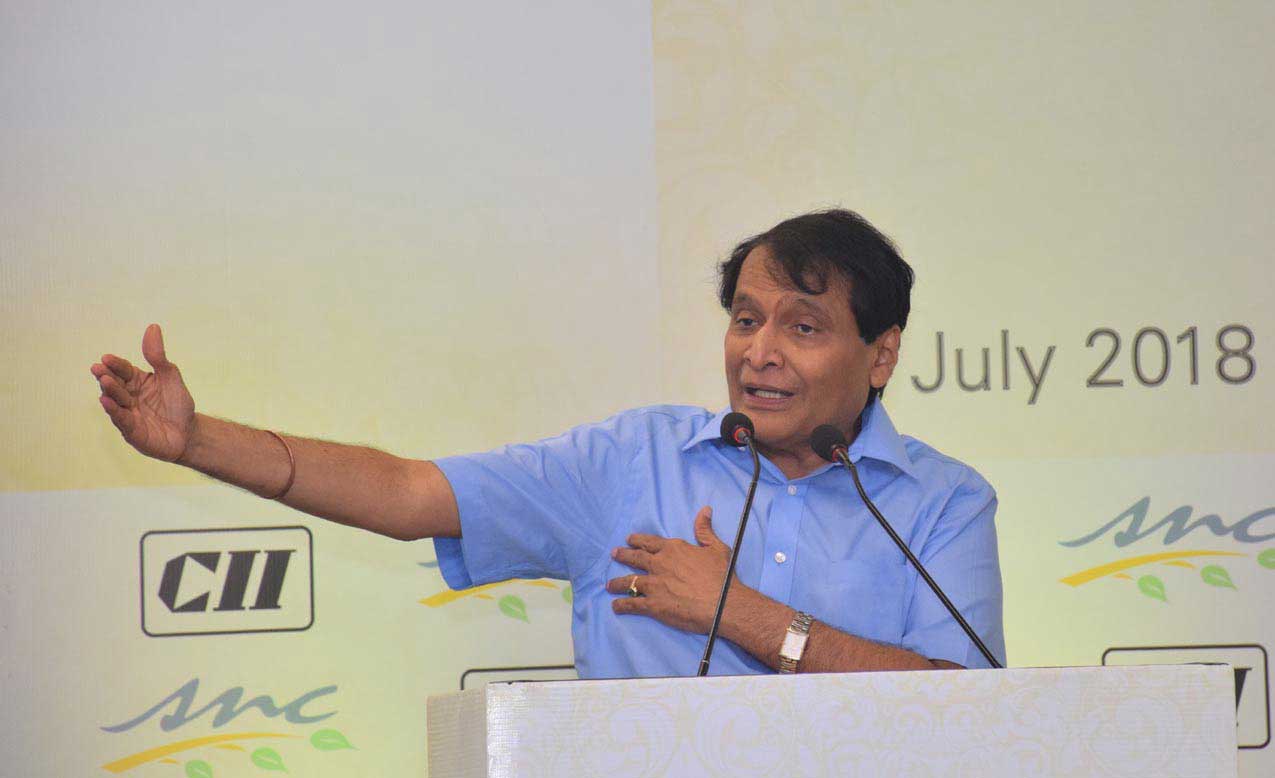The government will soon come out with a new industrial policy that will link the country with the global supply chain and will be mutually beneficial, commerce and industry minister Suresh Prabhu said on Saturday.
Prabhu, who also handles the aviation ministry, said, businesses can only grow when there are partnerships among several other geographies.
The comments come amid a continuous fall in merchandise exports from the country and the growing threats to global trade and even questions being raised about the existence of the WTO after the US administration under Donald Trump opened a slew of anti-trade practices against most of its trading partners.
The trade war between the US, the world's largest consumer, and the world's largest producer China has cast a pall of gloom over global economic growth.
“Manufacturing cannot happen end-to-end only in one geography; it has to be part of a global value chain and supply chain. And that is why we are discussing and have finalised from my ministry’s side, a new industrial policy that’s awaiting Cabinet approval.
“The policy focuses on developing a mutually beneficial value and supply chain,” Prabhu said at an event organised by the Confederation of Indian Industry.
“It is especially important when we are working towards a $10-trillion economy by 2035, when we see great opportunities for all countries to participate. Because no country can grow in isolation, he said.
“So if we were to have a $1-trillion manufacturing GDP, a good part of that could be sourced and worked with so many other countries,” he said.
In the services sector, which is the key export segment for the nation worth over billions of dollars, Prabhu said 12 sectors have been identified.
On agriculture, he said, the government has already come out with an agriculture export policy, which has helped the farm economy fare better.
“We have already worked out plans which are mutually beneficial where we produce under the quality control regime of the importing countries.”
“Our strategy is grass-roots development — from grass-roots to global, manufacturing to services, farming to value added and from FDI to investment by India in other countries, is the objective of our trade policy,” he said.
Focus on districts
The government wants to focus on the districts as part of a bottoms-up approach for boosting growth, Prabhu said.
The idea is to focus on one district at a time and increase its GDP growth by 3-4 percentage points annually, which will help increase the national GDP.
Accordingly, the government has identified six districts, has mapped the baseline of their economy with the help of the IIM and the NCAER and will now work on the specifics to increase their economic output.
“We’ve been focusing on the macro all this while, and while that continues, now we feel the need to also have the micro or the bottom,” said Prabhu.
The chosen districts are in Maharashtra, Andhra Pradesh, Bihar, Himachal Pradesh, and Uttar Pradesh.
The minister said it is now a certainty that the $2.6-trillion economy will scale the $5-trillion peak over the next seven-nine years, and touch the $10-trillion-mark by the turn of 2035.
The measures being undertaken to push growth at the district level are aimed at achieving this higher target earlier, he said.
There will be a launch event in the financial capital next Tuesday.
Prabhu said the country is now trying to increase the annual FDI inflows to $100 billion.
The government has identified the sectors which can attract investments and has prepared a list of 150 companies with huge cash balances which will be dipped into, he said.
He said a vibrant capital market is essential both for mobilising capital as well as make it work effectively, such that it delivers the maximum returns for the economy.
The minister promised government help to ensure that the capital markets keep performing well.










